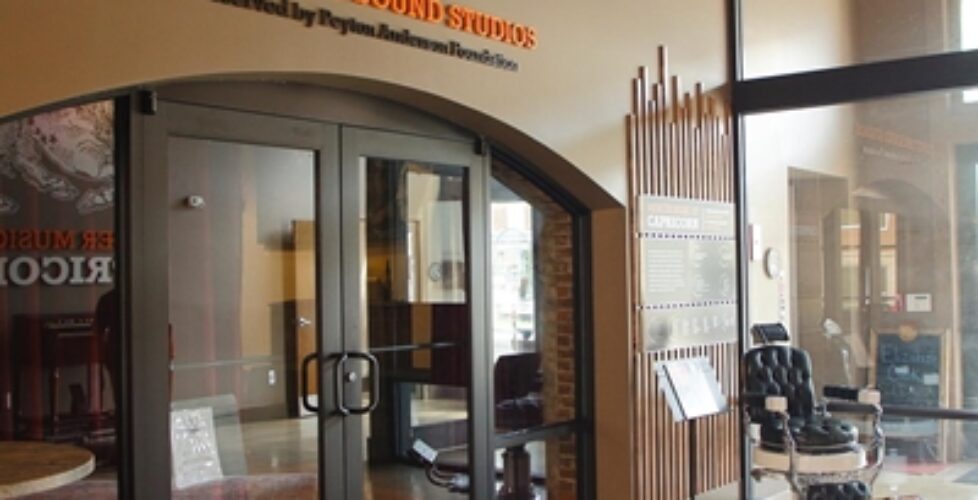Tom Poland: Coming Full Circle

I felt like I’d been tied to the whipping post. I was as low as the proverbial snake’s belly. May 30 a tornado destroyed my Athens, Georgia, home. My marriage was floundering, and I found myself with nothing but the clothes on my back and a banged-up stereo system. Thank heavens that sound system survived the tornado. Music kept me afloat the summer of 1973.
Four years earlier, Capricorn Records had released “The Allman Brothers Band.” It released “Brothers and Sisters” August 1973. That record, the band’s fourth studio album and the 1969 record lifted my spirits during the difficult summer of 1973. Living in the musty basement of a brick house along Highway 78 I wore both albums out. The Beatles had broken up and I needed new music heroes. I found them in the Allman Brothers, and they hailed from Macon, Georgia, less than two hours away.
Driving to Macon was out of the question. I worked full time as a ticket agent at the bus station, took a full load of courses, and taught classes as a grad assistant. I sensed, though, that someday somehow I would see where the boys made that marvelous music. In the years to come I drove to Macon seven times but I could never work Capricorn Records into my schedule. Trips to interview an attorney for a book, to speak to the Georgia Huguenot Society, and a drive to see Georgia’s folk drama, Swamp Gravy, stage my play took me through Macon but time was short as always.
And so my Allman Brothers wish list languished. On it were four items: Rose Hill Cemetery, Capricorn Records, the Big House (Allman Brothers’ residence/museum), and perchance someday meet legendary musician Chuck Leavell who lived south of Macon. The chance to meet him was coming in a surprising way.
Fall of 1973 my department chair called me into her office. “I’m sending you to Columbia, South Carolina, to teach for six months at a small college.” Six months led to many years. That difficult summer of 1973 was to be my last living in Georgia, but the move to Columbia opened doors. In 2018 I wrote features for an excellent magazine. My last assignment for the magazine was to profile Chuck Leavell. Things went well with the February 2019 interview and subsequent feature and I made several trips back to Charlane Woodlands, Chuck and wife Rose Lane’s home, to write a feature on Rose Lane.
As a result of my work, Chuck asked me to co-write his memoir. Recently he invited me to stay at his place and attend a September 6 event at Capricorn where he was to discuss a book recalling the Allman Brothers’ days when they were known as the Allman Joys.
Mercer University now operates Capricorn as Capricorn Sound Studios. I stood where the music had been laid down for all to hear. Songs filled my head as I looked at the piano Chuck had given the studio. “Jessica” came to me as clear as a bell. “Trouble No More” and “Every Hungry Woman” played in my head, as did “Dreams.” The next day I thought of “Rambling Man” as I rolled down Highway 41 in Macon. I’d come full circle since that difficult summer of 1973.
Those longhaired, rough and rowdy boys blessed us with a new genre of music, “Southern Rock,” and they had saved me when I most needed saving. Way, way back in 1973 the idea formed that someday I would make it to Macon and see where legends had risen, and I did.
Other bands added to Southern Rock, among them Lynyrd Skynyrd, the Marshall Tucker Band, and much later the Black Crows, but it’s the Allman Brothers I go back to time and time again. Trips to visit Chuck Leavell as I co-write his memoir of tree farming and rock music have given me the chance to visit Rose Hill Cemetery where Duane and Greg Allman sleep, Capricorn Sound Studios, and the Big House where the Brothers lived.
Sometimes you just have to wait and hope things will play out as you wish. My old car is long gone, my girls are grown, and my hair is silver. That music, though? It’s as good as ever, as good as it was when I played it over and over in the musty basement of a house that still stands.
Georgia native Tom Poland writes a weekly column about the South, its people, traditions, lifestyle, and culture and speaks frequently to groups in the South. Governor Henry McMaster conferred South Carolina’s highest civilian honor, the Order of the Palmetto, upon Poland, stating, “His work is exceptional to the state.” Poland’s work appears in books, magazines, journals, and newspapers throughout the South.
